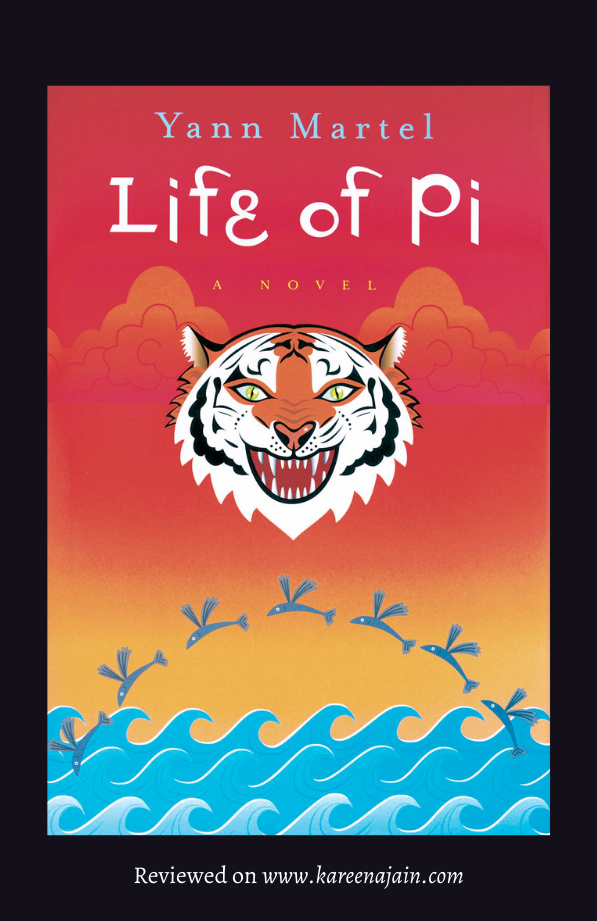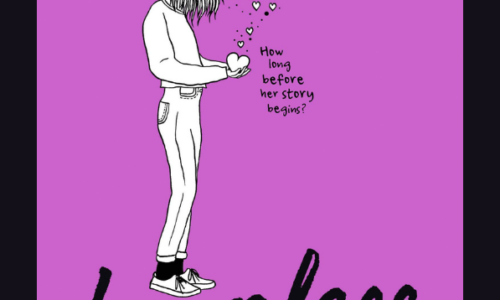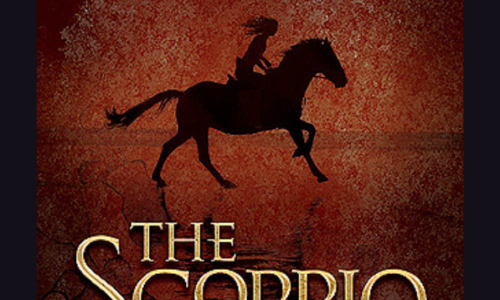“I must say a word about fear. It is life’s only true opponent. Only fear can defeat life. It is a clever, treacherous adversary, how well I know. It has no decency, respects no law or convention, shows no mercy. It goes for your weakest spot, which it finds with unnerving ease. It begins in your mind, always … so you must fight hard to express it. You must fight hard to shine the light of words upon it. Because if you don’t, if your fear becomes a wordless darkness that you avoid, perhaps even manage to forget, you open yourself to further attacks of fear because you never truly fought the opponent who defeated you.”
Life of Pi by Yann Martel is a tale of survival and morality. Piscine ‘Pi’ Patel is a young boy from Pondicherry, India, who reminisces on his life with the narrator of the story. His father owned the Pondicherry Zoo, and one day, Pi was on a transport ship with his family to move to Canada, along with many of their animals and a motley crew. Tragedy strikes, and the ship begins to sink. Pi manages to survive on a lifeboat, along with a zebra, a hyena, an orangutan, and an adult tiger named Richard Parker. A series of cruel events result in only Pi and Richard Parker being left on board the lifeboat to survive. As Pi, now an old man happily married and living in Canada, recounts the 227 days he spent at sea with only a tiger and his own thoughts for company, he tells the narrator the lessons of faith and survival that he learned. Before his family left Pondicherry, Pi had been raised a Hindu, but as he became more curious, he learned about and embraced Christianity and Islam as well. When at sea, it was often only his belief and personal philosophies that kept him from being driven to the madness that was inevitable due to isolation from humanity. Through Pi’s incredibly – if slightly unbelievable – journey in endurance, the narrator and audience are taught valuable lessons on human faith, the durability of a determined mind, and the duality of a man doing what it will take for him to survive.
“It’s important in life to conclude things properly. Only then can you let go. Otherwise you are left with words you should have said but never did, and your heart is heavy with remorse.”
Simple words and provoking script are used by Martel to deliver a heartfelt, invigorating story of a survivor. Pi’s story seems something out of a fairytale – for who could survive with a tiger? – but is the infinitely more preferable story, as determined by the Japanese officials interviewing Pi at the end of the novel wanting to know what happened to their ship. For the second story Pi tells them is not about animals but about humans, and when the bloodshed is over, there is not a boy and a tiger on that lifeboat, but only a boy. Pi’s research on faith and humanity before and after his shipwrecking is a testament to his strength and will, and an open message of love, kindness, and acceptance. His time with Richard Parker is a delicate study on how far someone is willing to go, what morals may be sacrificed for the sake of making it in a cruel world. You experience the challenges of life from a completely different point-of-view, and learn that no matter how hard things may seem, holding on to what you believe in will always guide you on the right path, whether that be the existence God, the path of life, or the unpredictable, oft invisible, but constant presence of love.
“If you stumble about believability, what are you living for? Love is hard to believe, ask any lover. Life is hard to believe, ask any scientist. God is hard to believe, ask any believer. What is your problem with hard to believe?”
Available for purchase at:



